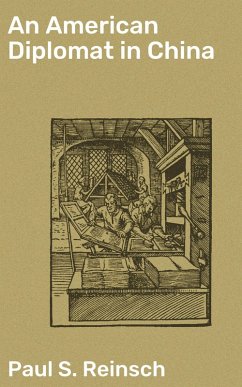
Secret Diplomatic History of The Eighteenth Century (eBook, ePUB)
Enriched edition. Unmasking the Intrigues of Eighteenth Century Diplomacy
Kommentar: Longford, Jeremy / Redaktion: Good Press; Aveling, Eleanor Marx
Versandkostenfrei!
Sofort per Download lieferbar
1,99 €
inkl. MwSt.
Weitere Ausgaben:

PAYBACK Punkte
0 °P sammeln!
In "Secret Diplomatic History of The Eighteenth Century," Karl Marx delves into the intricacies of diplomatic relations and political maneuverings during a transformative period in European history. Employing a meticulous analytical approach, Marx unearths the hidden behaviors and motivations of state actors, revealing how economic interests and class struggles shaped international relations. The writing style is both rigorous and accessible, making the complex diplomatic exchanges of the era comprehensible to a wide audience, while Marx's historical materialist lens offers a unique interpreta...
In "Secret Diplomatic History of The Eighteenth Century," Karl Marx delves into the intricacies of diplomatic relations and political maneuverings during a transformative period in European history. Employing a meticulous analytical approach, Marx unearths the hidden behaviors and motivations of state actors, revealing how economic interests and class struggles shaped international relations. The writing style is both rigorous and accessible, making the complex diplomatic exchanges of the era comprehensible to a wide audience, while Marx's historical materialist lens offers a unique interpretation that connects economic conditions with political developments. Karl Marx, renowned as a philosopher, economist, and revolutionary socialist, crafted this work amidst his broader intellectual pursuits in critiquing political economy and social structures. His insights derive not only from a profound understanding of historical context but also from personal experiences of political upheaval and the struggles of the working class. This background provides a rich foundation for his exploration of how the intersection of diplomacy and class dynamics can influence history. "Secret Diplomatic History of The Eighteenth Century" is an essential read for anyone seeking to comprehend the underpinnings of modern political systems and the role that economic forces play in shaping diplomatic affairs. Marx's careful dissection of historical events will enlighten readers, encouraging a nuanced perspective on the relationship between economic interests and foreign policy. In this enriched edition, we have carefully created added value for your reading experience: - A succinct Introduction situates the work's timeless appeal and themes. - The Synopsis outlines the central plot, highlighting key developments without spoiling critical twists. - A detailed Historical Context immerses you in the era's events and influences that shaped the writing. - An Author Biography reveals milestones in the author's life, illuminating the personal insights behind the text. - A thorough Analysis dissects symbols, motifs, and character arcs to unearth underlying meanings. - Reflection questions prompt you to engage personally with the work's messages, connecting them to modern life. - Hand-picked Memorable Quotes shine a spotlight on moments of literary brilliance. - Interactive footnotes clarify unusual references, historical allusions, and archaic phrases for an effortless, more informed read.
Dieser Download kann aus rechtlichen Gründen nur mit Rechnungsadresse in A, B, BG, CY, CZ, D, DK, EW, E, FIN, F, GR, H, IRL, I, LT, L, LR, M, NL, PL, P, R, S, SLO, SK ausgeliefert werden.














